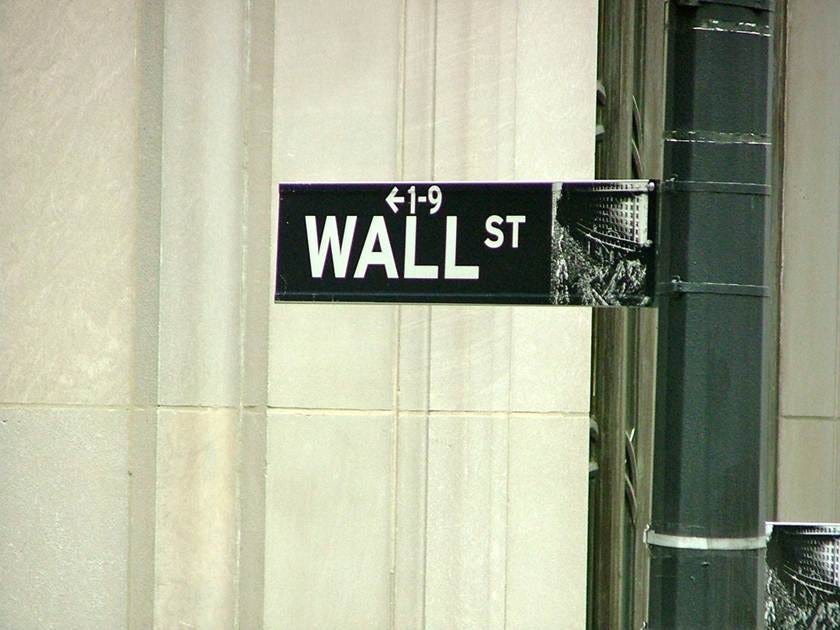$FMKT: Turning Executive Orders into Market Opportunities
One stroke of a presidential pen can reshape entire industries. In 2025, a wave of new U.S. executive orders began doing just that—unwinding restrictions, accelerating competition, and reshaping the investing landscape. For investors in The Free Markets ETF (FMKT), which targets companies positioned to benefit from freer economic policy, these actions create tailwinds across energy, healthcare, and finance¹.
Energy and Transportation: Deregulation and Domestic Revival
Platform Houchin offshore oil rig at sunset (BOEM photo). Energy companies face new opportunities as drilling restrictions are lifted.
Energy policy has flipped direction. The Interior Department reopened offshore and Alaskan drilling zones that had been off-limits, freeing millions of acres for new leases²³⁴. As Secretary Doug Burgum noted, the goal is to “unleash America’s energy resources” and strengthen national security⁵. Easing permitting restrictions benefits oil, gas, and mining firms while supporting related infrastructure⁶.
Transportation is following suit. The EPA is reconsidering strict tailpipe-emission rules that accelerated electric-vehicle mandates⁷⁸⁹. Looser standards could extend demand for gasoline and lift traditional automakers’ margins—boosting FMKT holdings such as natural-gas and nuclear-fuel producers¹⁰¹¹. Although environmental groups plan legal challenges, the short-term tilt clearly favors conventional energy and industrial producers.
Healthcare: Market Competition Over Price Controls
Generic pills in blister packs. New policies encourage faster approval of generics to spur competition and cut costs.
A series of orders has targeted drug pricing—not through caps, but through competition. Federal agencies were directed to fast-track approvals for generic and biosimilar drugs and restrict tactics that stifle new entrants¹²¹³¹⁴. Regulators also scrutinize pharmacy-benefit managers (PBMs) for practices that inflate costs¹⁵¹⁶.
These measures may compress margins for large pharmaceutical firms yet expand opportunities for distributors, pharmacies, and insurers. FMKT’s exposure to healthcare distributors aligns with this theme¹¹. By removing artificial barriers, Washington is betting that innovation and affordability can coexist—a textbook case of deregulation through market competition.
Financial Services: Loosening the Reins
Wall Street sign in New York’s financial district. A lighter regulatory touch is changing the backdrop for banks and markets.
Early 2025 saw a broad rollback of Biden-era financial rules, including a reinstated “two-for-one” mandate that requires cutting two regulations for every new one¹⁷¹⁸¹⁹. Regulators were told to stop citing vague “reputation risks” to deny loans to lawful businesses²⁰. This shift reopens capital access for industries once deemed politically sensitive.
Meanwhile, revoking the 2021 antitrust executive order reintroduces predictability in merger reviews²¹²²²³²⁴. Faster approvals could reignite deal activity in sectors like telecom and finance. FMKT holdings such as CME Group and Interactive Brokers stand to gain from a lighter compliance load¹¹. The administration also shelved pending climate-risk disclosure mandates, reducing costs for financial firms²⁵.
Though deregulation carries long-term risks of over-leverage, the current tone is unmistakably pro-business—a dynamic FMKT was designed to capture.
Conclusion
“Policy is the new catalyst.” The 2025 executive-order spree demonstrates how deregulation can redirect entire sectors toward growth. Energy producers gain freedom to drill, healthcare firms compete on price, and financial institutions face fewer barriers. FMKT’s diversified portfolio reflects this thesis, seeking to harness opportunities born from regulatory retreat¹¹²⁶.
While future administrations could reverse course, today’s landscape favors agility and open competition—the essence of free markets. For investors watching Washington, these policy shifts aren’t background noise; they are the signal.
Footnotes
¹ “New ETF Eyes Companies Poised for Deregulation Relief,” ETF.com.
² “Burgum Moves to Expand Offshore Oil and Gas Leasing,” WorkBoat.
³ “Trump Administration Aims to Auction Offshore Oil Leases,” CBS News.
⁴ U.S. Department of the Interior Press Release.
⁵ Ibid.
⁶ Ibid.
⁷ “EPA Launches Biggest Deregulatory Action in U.S. History,” EPA News Releases.
⁸ Ibid.
⁹ Ibid.
¹⁰ “New ETF Eyes Companies Poised for Deregulation Relief,” ETF.com.
¹¹ Ibid.
¹² “Lowering Drug Prices by Once Again Putting Americans First,” Federal Register.
¹³ “Listening Sessions on Lowering Americans’ Drug Prices Through Competition,” U.S. DOJ Antitrust Division.
¹⁴ Ibid.
¹⁵ Ibid.
¹⁶ Ibid.
¹⁷ “Executive Order 14148,” Wikipedia.
¹⁸ Ibid.
¹⁹ Ibid.
²⁰ “Trump’s 2025 Executive Orders,” Holland & Knight.
²¹ “Statement on Revocation of Biden-Harris Executive Order on Competition,” U.S. DOJ Office of Public Affairs.
²² Ibid.
²³ Ibid.
²⁴ Ibid.
²⁵ “Trump Administration Rescinds Batch of Biden-Era Executive Orders,” Sabin Center for Climate Change Law.
²⁶ “New ETF Eyes Companies Poised for Deregulation Relief,” ETF.com.
Past performance is no guarantee of future results.
The Fund’s investment objectives, risks, charges, expenses and other information are described in the statutory or summary prospectus, which must be read and considered carefully before investing. You may download the statutory or summary prospectus or obtain a hard copy by calling 855-994-4004 or visiting www.freemarketsetf.com. Please read the Prospectuses carefully before you invest.
Investing involves risk including the possible loss of principal.
FMKT is distributed by Foreside Fund Services, LLC.
Find full holding details and learn more about FMKT at
http://www.freemarketsetf.com.
Holdings are subject to change.
Deregulation Strategy Risks.The Fund’s strategy of investing in companies that may benefit from deregulatory measures entails significant risks, including those stemming from the unpredictable nature of regulatory trends. Deregulation is influenced by political, economic, and social factors, which can shift rapidly and in unforeseen directions. Changes in government priorities, political leadership, or public sentiment may result in the reversal of existing deregulatory policies or the introduction of new regulations that could adversely affect certain industries or companies. Further, while the Fund invests in companies expected to benefit from deregulatory initiatives, not all of these companies may achieve the expected advantages, whether fully, partially, or at all. The actual impact of deregulatory measures may vary widely depending on a company’s specific operational, financial, and competitive circumstances. Companies may also face challenges adapting to new regulatory environments, or their competitive positioning may be undermined by other market factors unrelated to deregulation. These risks could negatively affect the performance of the Fund’s portfolio.
Underlying Digital Assets ETP Risks. The Fund’s investment strategy, involving indirect exposure to Bitcoin, Ether, or any other Digital Assets through one or more Underlying ETPs, is subject to the risks associated with these Digital Assets and their markets. These risks include market volatility, regulatory changes, technological uncertainties, and potential financial losses. As with all investments, there is no assurance of profit, and investors should be cognizant of these specific risks associated with digital asset markets.
● Underlying Bitcoin and Ether ETP Risks: Investing in an Underlying ETP that focuses on Bitcoin, Ether, and/or other Digital Assets, either through direct holdings or indirectly via derivatives like futures contracts, carries significant risks. These include high market volatility influenced by technological advancements, regulatory changes, and broader economic factors. For derivatives, liquidity risks and counterparty risks are substantial. Managing futures contracts tied to either asset may affect an Underlying ETP’s performance. Each Underlying ETP, and consequently the Fund, depends on blockchain technologies that present unique technological and cybersecurity risks, along with custodial challenges in securely storing digital assets. The evolving regulatory landscape further complicates compliance and valuation efforts. Additionally, risks related to market concentration, network issues, and operational complexities in managing Digital Assets can lead to losses. For Ether specifically, risks associated with its transition to a proof-of-stake consensus mechanism, including network upgrades and validator centralization, may add additional uncertainties.
●Bitcoin and Ether Investment Risk: The Fund’s indirect investments in Bitcoin and Ether through holdings in one or more Underlying ETPs expose it to the unique risks of these digital assets. Bitcoin’s price is highly volatile, driven by fluctuating network adoption, acceptance levels, and usage trends. Ether faces similar volatility, compounded by its reliance on decentralized applications (dApps) and smart contract usage, which are subject to innovation cycles and adoption rates. Neither asset operates as legal tender or within central authority systems, exposing them to potential government restrictions. Regulatory actions in various jurisdictions could negatively impact their market values. Both Bitcoin and Ether are susceptible to fraud, theft, market manipulation, and security breaches at trading platforms. Large holders of these assets (”whales”) can influence their prices significantly. Forks in the blockchain networks—such as Ethereum’s earlier split into Ether Classic—can affect demand and performance. Both assets’ prices can be influenced by speculative trading, unrelated to fundamental utility or adoption.
● Digital Assets Risk: Digital Assets like Bitcoin and Ether, designed as mediums of exchange or for utility purposes, are an emerging asset class. Operating independently of any central authority or government backing, they face extreme price volatility and regulatory scrutiny. Trading platforms for Digital Assets remain largely unregulated and prone to fraud and operational failures compared to traditional exchanges. Platform shutdowns, whether due to fraud, technical issues, or security breaches, can significantly impact prices and market stability.
● Digital Asset Markets Risk: The Digital Asset market, particularly for Bitcoin and Ether, has experienced considerable volatility, leading to market disruptions and erosion of confidence among participants. Negative publicity surrounding these disruptions could adversely affect the Fund’s reputation and share trading prices. Ongoing market turbulence could significantly impact the Fund’s value.
● Blockchain Technology Risk: Blockchain technology underpins Bitcoin, Ether, and other digital assets, yet it remains a relatively new and largely untested innovation. Competing platforms, changes in adoption rates, and technological advancements in blockchain infrastructure can affect their functionality and relevance. For Ether, the dependence on its proof-of-stake mechanism and smart contract capabilities introduces risks tied to network performance and scalability. Investments in blockchain-dependent companies or vehicles may experience market volatility and lower trading volumes. Furthermore, regulatory changes, cybersecurity incidents, and intellectual property disputes could undermine the adoption and stability of blockchain technologies.
Recent Market Events Risk. U.S. and international markets have experienced and may continue to experience significant periods of volatility in recent years and months due to a number of economic, political and global macro factors including uncertainty regarding inflation and central banks’ interest rate changes, the possibility of a national or global recession, trade tensions and tariffs, political events, war and geopolitical conflict. These developments, as well as other events, could result in further market volatility and negatively affect financial asset prices, the liquidity of certain securities and the normal operations of securities exchanges and other markets, despite government efforts to address market disruptions.
New Fund Risk. The Fund is a recently organized management investment company with no operating history. As a result, prospective investors do not have a track record or history on which to base their investment decisions.
. Lead-Lag Publishing, LLC is not an affiliate of Tidal/Toroso, Tactical Rotation Management, LLC, SYKON Asset Management, Point Bridge Capital, or ACA/Foreside.



